Photo: Dmitry LivshitsEveryone to the garden! Chelsea.This event is noted in the diary of the English queen herself, not to mention her loyal subjects. Tickets for the exhibition must be bought several months in advance, and it is better to come here with a huge cart, so that later you have something to take out the exhibits you like. On the last day, participants sell their treasures, digging them out of the ground (right in the pots): the plants here cost pennies, or rather, pennies, but there is no point in us buying them: flowers are strictly prohibited from being imported into Russia by customs. Those who do not have a cart use any available means. Before our eyes, a girl gave up her wheelchair to flower pots. Here it is, the life-giving power of art!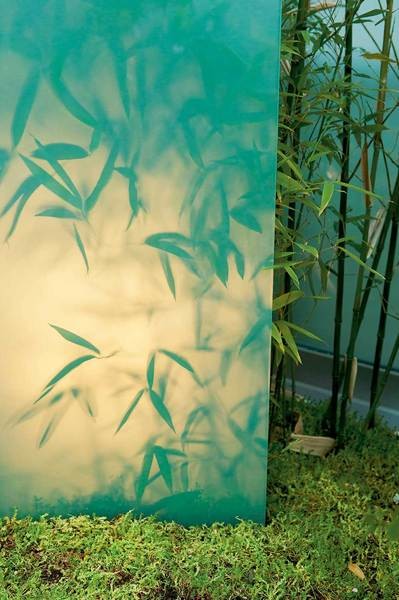 Exhibition garden
Exhibition garden
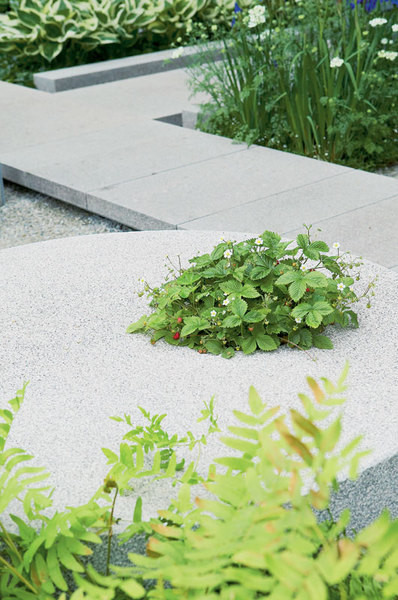
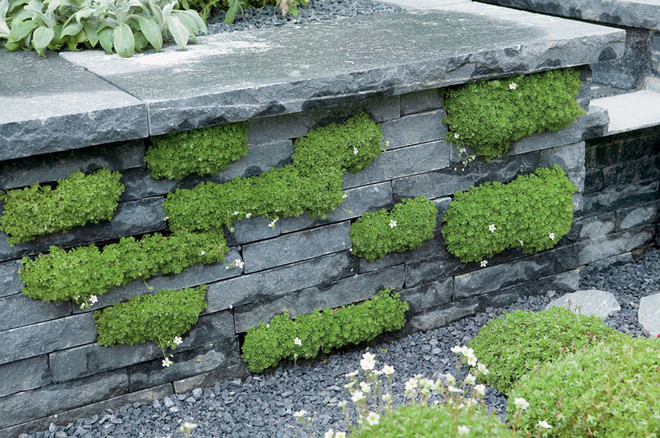 Competition program There is a big difference betweenwhat the people choose and what the jury chooses. The English people love benches, fountains, flowers and colours, in other words, traditions. However, the people's favourites rarely win gold or are recognised as the best in their nominations. The jury gives awards for originality and fresh ideas. Designers try to sit on two chairs, although it is noticeable that the "people's" chair has recently attracted them more - after all, commerce cannot be forgotten either! Perhaps that is why there are more classical gardens than ever before. Lovely, thoughtful, with walls covered with ivy and ponds surrounded by flowers. Jane Austen and Charlotte Bronte would have been happy here, but can this convince the jury?
Competition program There is a big difference betweenwhat the people choose and what the jury chooses. The English people love benches, fountains, flowers and colours, in other words, traditions. However, the people's favourites rarely win gold or are recognised as the best in their nominations. The jury gives awards for originality and fresh ideas. Designers try to sit on two chairs, although it is noticeable that the "people's" chair has recently attracted them more - after all, commerce cannot be forgotten either! Perhaps that is why there are more classical gardens than ever before. Lovely, thoughtful, with walls covered with ivy and ponds surrounded by flowers. Jane Austen and Charlotte Bronte would have been happy here, but can this convince the jury?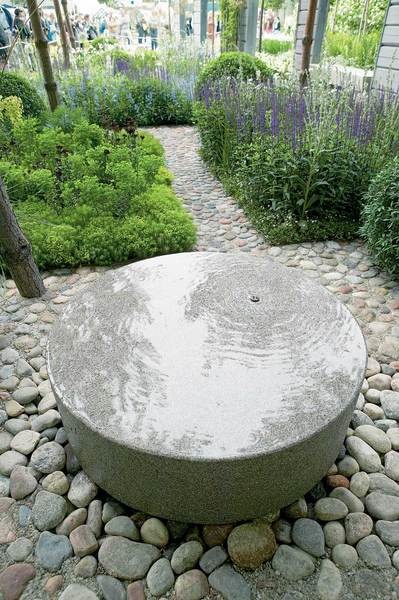
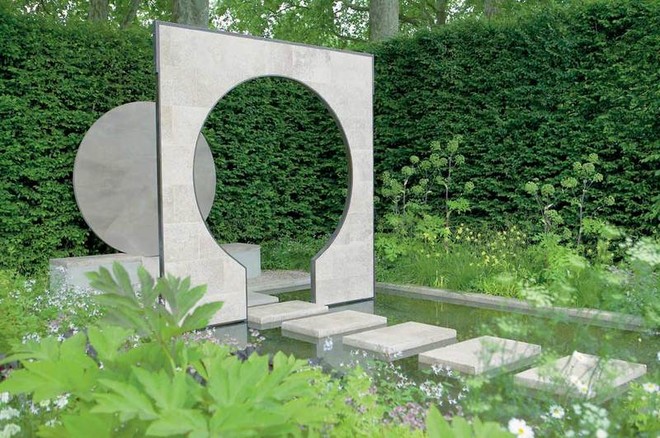
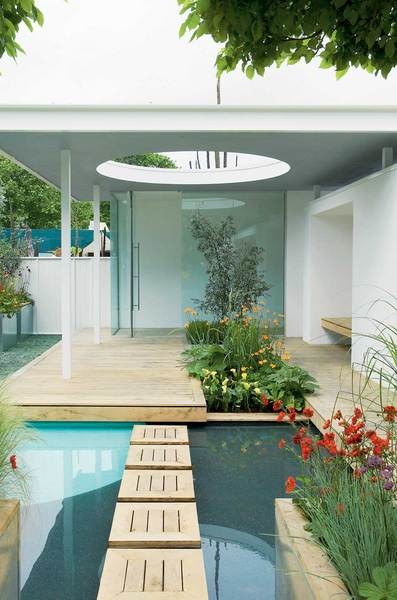
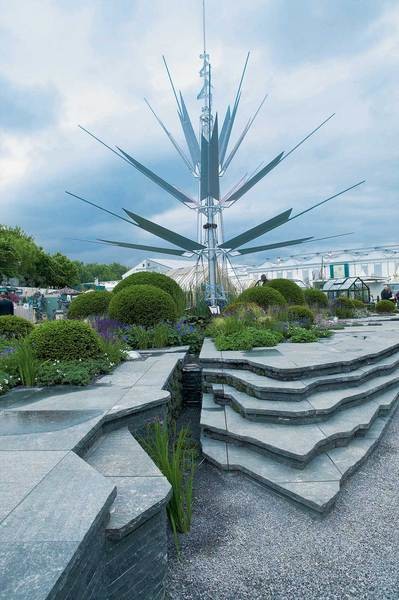
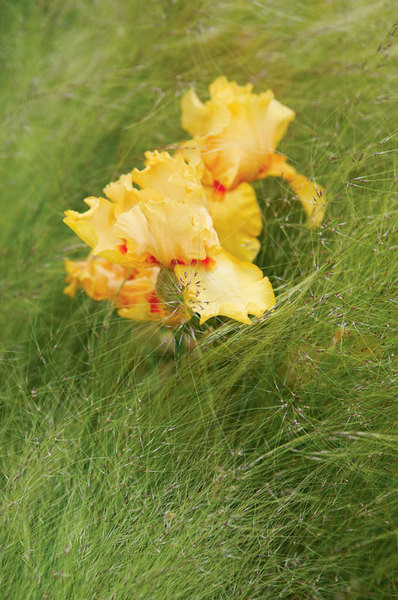 Recycling idea Chelsea's oldest members foundloophole and serve the old design in a new beautiful package called recycling (waste disposal, in Russian). This is a "win-win" ticket. Designers who promote the idea of recycling become Chelsea winners as often as films with a social context win an Oscar. Jeffrey Whiten succeeded in this: in the garden of an old peasant he invented, there is a pond overgrown with mud, a rickety cart, half-flowerbeds, half-garden beds, on which everything grows. What does waste disposal have to do with it? "Well, of course, did our ancestors ever throw anything away? No!" answers Jeffrey. "They used it until it fell apart before their eyes, without, mind you, any harm to nature." The result? Visitors were touched and sighed, remembering summer holidays spent with their grandparents in the country, and a plaque in gold on white stated that the garden had been awarded a silver medal. Flowers and colours Flowers and colours are now in fashion, bright and varied. Isabelle van Groningen and Gabriella Pape from the Daily Telegraph garden argue that the roots of this trend should be sought literally in German soil: the Germans, they say, like it bright in the garden, and do not disdain to plant roses and mimosas next to each other, even if their island neighbours shudder at such a combination. Let us correct ourselves: it did until recently. The definition of "grey-brown-crimson" can now be applied quite well to English gardens, replacing grey with orange, or yellow, or blue, or better yet, all of these colours together, with an allowance for natural limitations. And the problem of combinations no longer worries anyone. What used to be considered bad taste is now considered courage. Why is that? I asked Gabriela this question and received a worthy rebuff: "It's not bad taste, but a tradition, although a German one, and we tried to revive it." To explain everything by traditions, their own or others, is in the English blood. Having wandered around the exhibition, I came to a simpler conclusion: the Chelsea participants decided to be closer to the people. People flocked to bright colors like bees to honey.
Recycling idea Chelsea's oldest members foundloophole and serve the old design in a new beautiful package called recycling (waste disposal, in Russian). This is a "win-win" ticket. Designers who promote the idea of recycling become Chelsea winners as often as films with a social context win an Oscar. Jeffrey Whiten succeeded in this: in the garden of an old peasant he invented, there is a pond overgrown with mud, a rickety cart, half-flowerbeds, half-garden beds, on which everything grows. What does waste disposal have to do with it? "Well, of course, did our ancestors ever throw anything away? No!" answers Jeffrey. "They used it until it fell apart before their eyes, without, mind you, any harm to nature." The result? Visitors were touched and sighed, remembering summer holidays spent with their grandparents in the country, and a plaque in gold on white stated that the garden had been awarded a silver medal. Flowers and colours Flowers and colours are now in fashion, bright and varied. Isabelle van Groningen and Gabriella Pape from the Daily Telegraph garden argue that the roots of this trend should be sought literally in German soil: the Germans, they say, like it bright in the garden, and do not disdain to plant roses and mimosas next to each other, even if their island neighbours shudder at such a combination. Let us correct ourselves: it did until recently. The definition of "grey-brown-crimson" can now be applied quite well to English gardens, replacing grey with orange, or yellow, or blue, or better yet, all of these colours together, with an allowance for natural limitations. And the problem of combinations no longer worries anyone. What used to be considered bad taste is now considered courage. Why is that? I asked Gabriela this question and received a worthy rebuff: "It's not bad taste, but a tradition, although a German one, and we tried to revive it." To explain everything by traditions, their own or others, is in the English blood. Having wandered around the exhibition, I came to a simpler conclusion: the Chelsea participants decided to be closer to the people. People flocked to bright colors like bees to honey.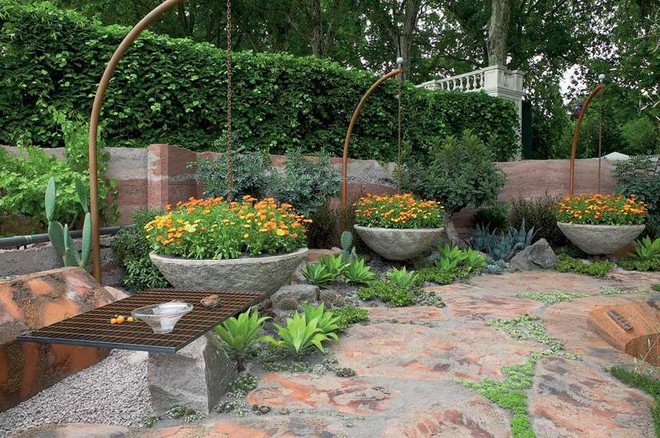



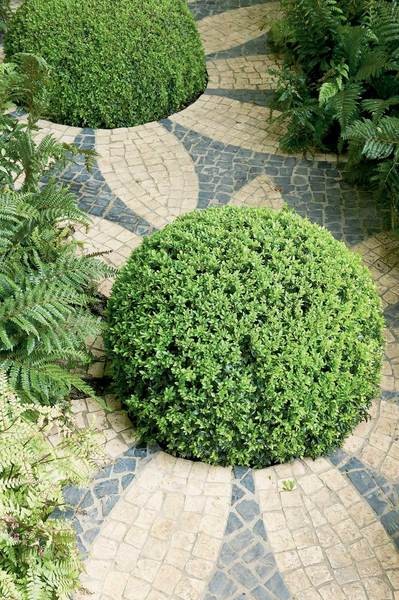
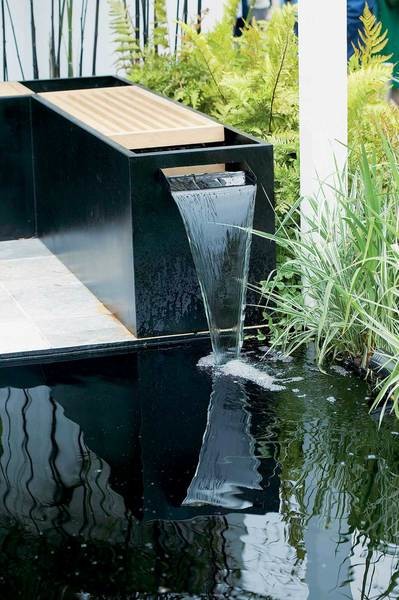

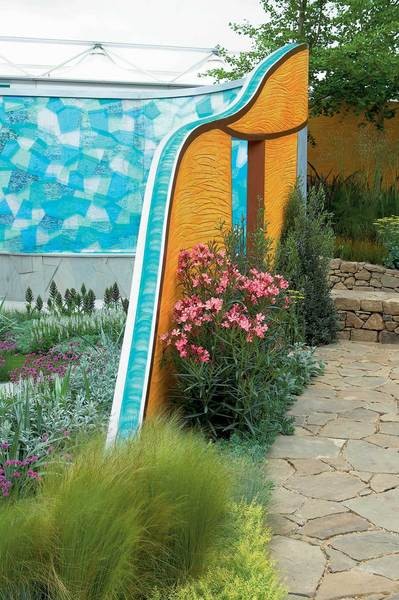 Weeds This is another trend from the category«both ours and yours». Having become famous all over the world for their neatly trimmed lawns, which are now called nothing other than English, the residents of the United Kingdom decided to try something new. This new one is the same grass, only no longer trimmed and smoothed out, but the way nature created it (or gardeners who have learned to imitate it quite well). The grass sways around the paths, reminiscent of the pensive foliage in Antonioni's "Photo Blow-Up", strives to climb into the flowerbed of garden flowers - from where it would previously have been indignantly driven out - and fills all more or less open spaces. The last case could be considered the most uninteresting - a meadow like a meadow, if not for one curious detail. Where in nature there would grow a bellflower, or a chamomile, or a poppy, which are called wild flowers for this property, designers suddenly have a foundling iris, or a rose, or some other flower, accustomed to a more aristocratic neighborhood than grass. Long live English democracy! The fight for economy The fight for economy is gaining momentum. This year, waterfalls have completely disappeared. They say it is too expensive. The water that is there runs in a thin stream along a narrow aqueduct, carefully collects at the very ground and is delivered again without loss to the top of the structure or pours out of a device vaguely reminiscent of the lower part of a gutter. It does not just pour, but into a pool - by the way, you can swim in it on a sunny day. With the money they earned, designers are building stone edging for the pools, and stone paths and stone seats to go with it - Chelsea has never had so much stone. Is it really the cheapest material? It turned out not to be. Not only is it expensive, it is also questionable. In England, they treat it the same way as in Germany, they treat natural fur. The Human Rights Party says: it is not allowed, stone is brought to England from third world countries, where children work in the quarries; the Party of Admirers of Beauty says: it is allowed, because it is beautiful, if you don’t want to buy from other countries - support the domestic manufacturer. I saw the prices of this manufacturer: natural stone and gold are almost the same price. So I would vote for the Democrats. www.rhs.org.uk
Weeds This is another trend from the category«both ours and yours». Having become famous all over the world for their neatly trimmed lawns, which are now called nothing other than English, the residents of the United Kingdom decided to try something new. This new one is the same grass, only no longer trimmed and smoothed out, but the way nature created it (or gardeners who have learned to imitate it quite well). The grass sways around the paths, reminiscent of the pensive foliage in Antonioni's "Photo Blow-Up", strives to climb into the flowerbed of garden flowers - from where it would previously have been indignantly driven out - and fills all more or less open spaces. The last case could be considered the most uninteresting - a meadow like a meadow, if not for one curious detail. Where in nature there would grow a bellflower, or a chamomile, or a poppy, which are called wild flowers for this property, designers suddenly have a foundling iris, or a rose, or some other flower, accustomed to a more aristocratic neighborhood than grass. Long live English democracy! The fight for economy The fight for economy is gaining momentum. This year, waterfalls have completely disappeared. They say it is too expensive. The water that is there runs in a thin stream along a narrow aqueduct, carefully collects at the very ground and is delivered again without loss to the top of the structure or pours out of a device vaguely reminiscent of the lower part of a gutter. It does not just pour, but into a pool - by the way, you can swim in it on a sunny day. With the money they earned, designers are building stone edging for the pools, and stone paths and stone seats to go with it - Chelsea has never had so much stone. Is it really the cheapest material? It turned out not to be. Not only is it expensive, it is also questionable. In England, they treat it the same way as in Germany, they treat natural fur. The Human Rights Party says: it is not allowed, stone is brought to England from third world countries, where children work in the quarries; the Party of Admirers of Beauty says: it is allowed, because it is beautiful, if you don’t want to buy from other countries - support the domestic manufacturer. I saw the prices of this manufacturer: natural stone and gold are almost the same price. So I would vote for the Democrats. www.rhs.org.uk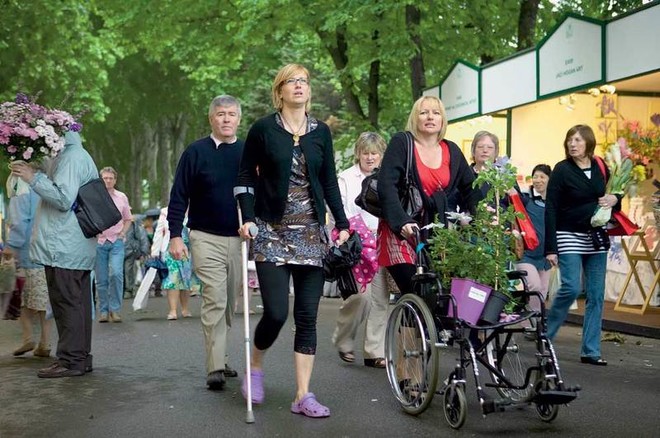

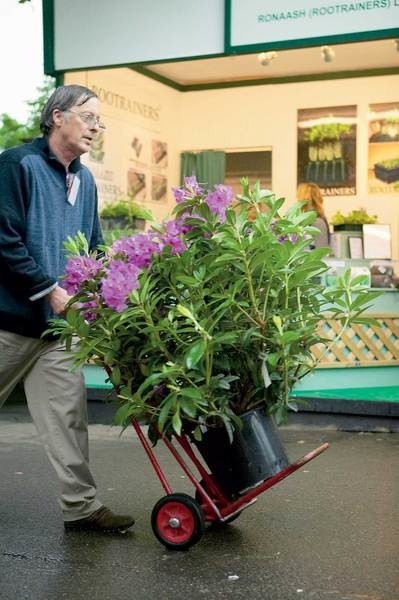

Making Money with Desserts: Success Stories
Evgeniya Polischuk (Fedutinova) instagram:@evgeniyafedutinovavk.com/janeshomebaking– It all started with baking for family and friends. Gradually, I started posting photos of my baked goods on Instagram – and orders started coming in. I made my first custom-made cake on October 13, 2014, and a little earlier I started making macaroons and cupcakes. You could say that the business “found me”, I am very […]

Soups are cold recipes with photos
Cold cucumber soup with yogurt and lemonsorbet from the chef of the restaurant La Taverna Alexander Zhurkin Photo: Getty Images Ingredients: Plain yoghurt – 125 g Cucumber – 150 g Lemon/lime sorbet – 50 g Cocktail shrimp – 24 g Fresh ginger juice – 1 g Lime juice – 5 g Fresh orange juice – 5 g Parsley – 1 g Pink pepper – 1 g Watercress – […]

barbeque kebab
Pork tenderloin in glaze Photo:Dmitry Bayrak/dbstudioPreparation time: 20 minutes + marinating time.Calories: 454 kcal per serving.For 4 servings: 4 pork tenderloins (approximately 300 g each), 1 onion, 2 cloves of garlic, 1 tsp. lemon zest, 1 tsp. lemon juice, a pinch of ground cumin, coriander and turmeric, 1 tbsp. vegetable […]

Pierre Duacan: dietary recipes: Ducane diet
Beetroot soup Photo:Season’S, Luxury Hotels RepresentationYou will need:· Boiled beetroot – 60 g· Fresh cucumbers – 20 g· Red radish – 20 g· Green onions – 10 g· Egg – 1 pc.· Drinking mineral water – 200 g· Salt – 1 gPreparation:· Boil the egg and beetroot.· Grate the cucumbers, radish and part of the beetroot. Put everything […]





